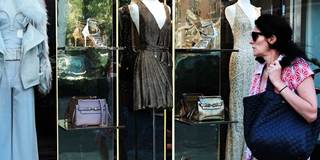The decision to place inequality at the center of the discussion at Davos this year was a promising development. But actual solutions remain undeveloped, and concern about widening economic disparities within many countries remains inadequate, which must change if the current global economic recovery is to continue.
LONDON/WASHINGTON, DC – At this year’s World Economic Forum meeting in Davos, Switzerland, participants did not question the basic building blocks of growth in today’s global economy: free markets, good governance, and investment in human capital and infrastructure. But they did criticize how unfairly the benefits of growth are being distributed. Rightly so: without a strong policy response aimed at building a more inclusive growth model, rising populism and economic nationalism will impair the functioning of markets and overall macroeconomic stability – potentially cutting short the current global recovery.

LONDON/WASHINGTON, DC – At this year’s World Economic Forum meeting in Davos, Switzerland, participants did not question the basic building blocks of growth in today’s global economy: free markets, good governance, and investment in human capital and infrastructure. But they did criticize how unfairly the benefits of growth are being distributed. Rightly so: without a strong policy response aimed at building a more inclusive growth model, rising populism and economic nationalism will impair the functioning of markets and overall macroeconomic stability – potentially cutting short the current global recovery.